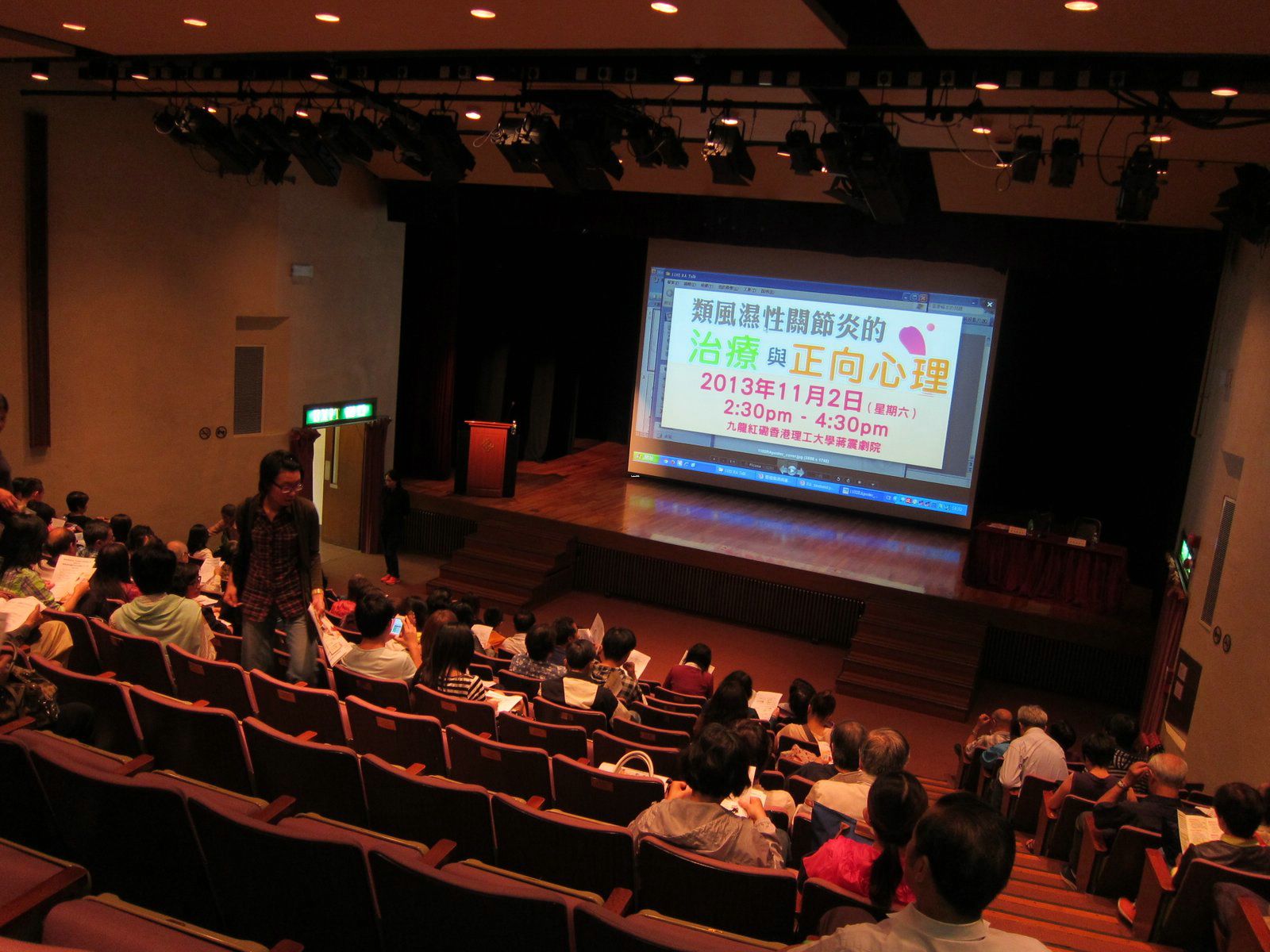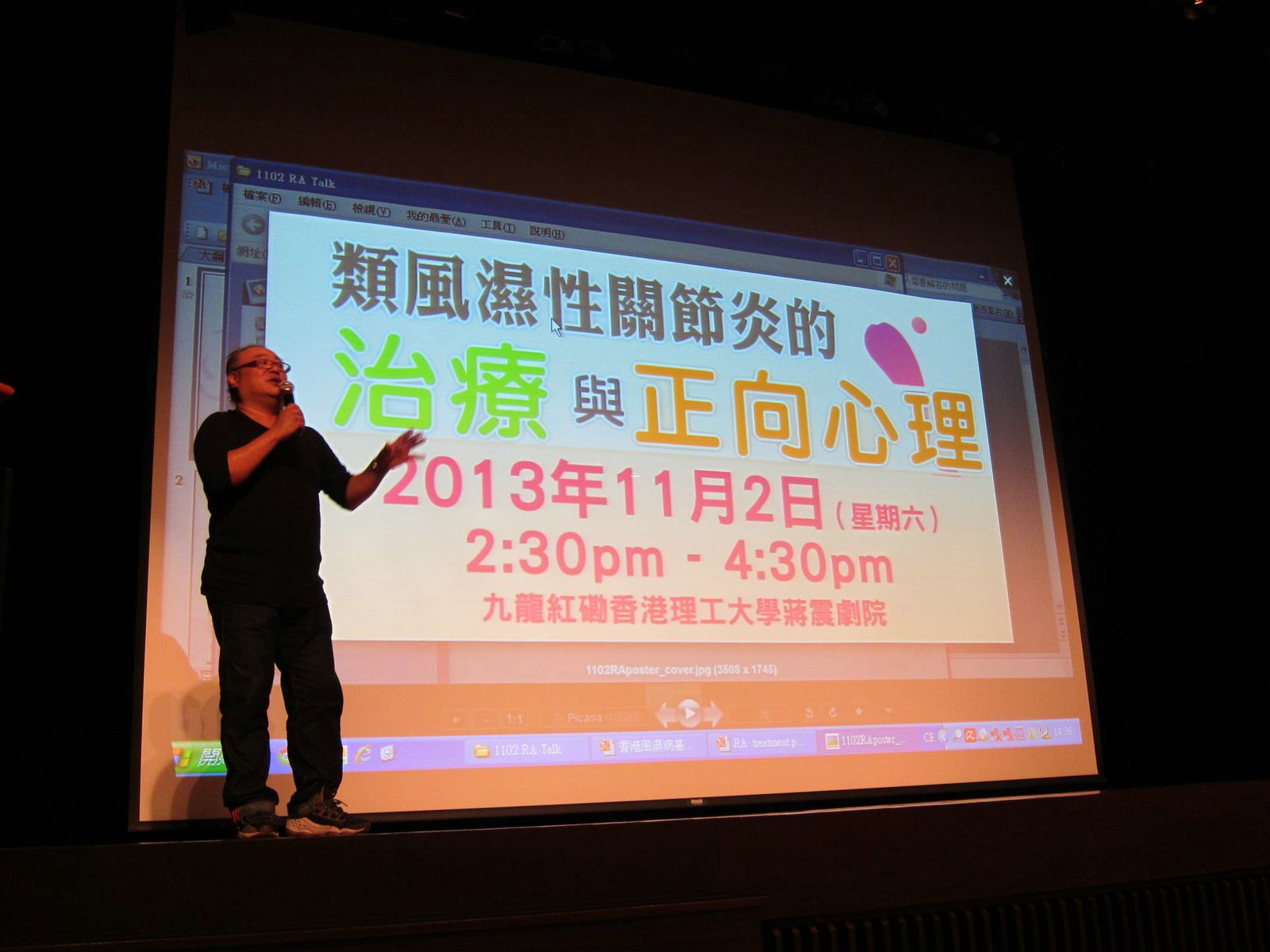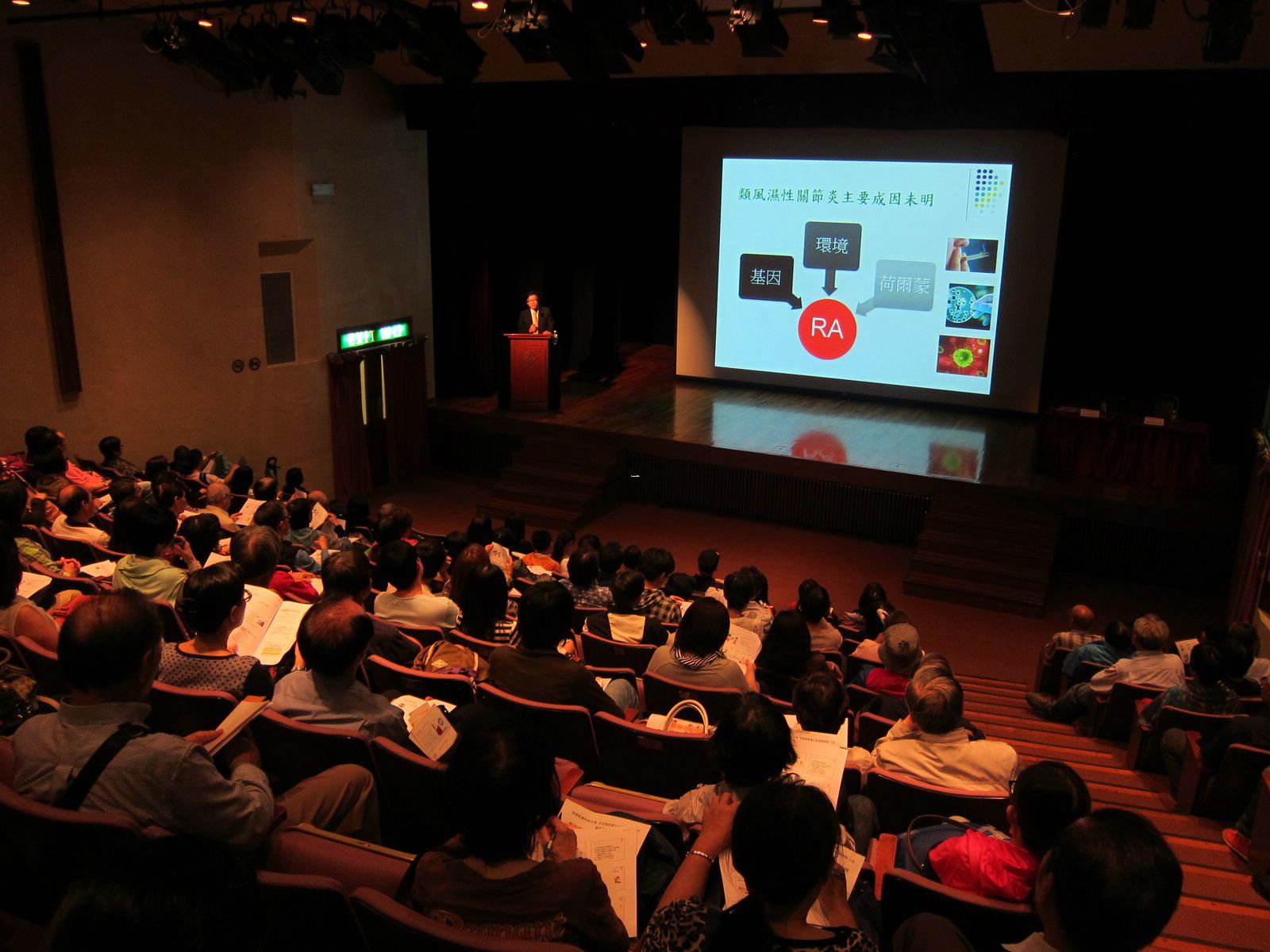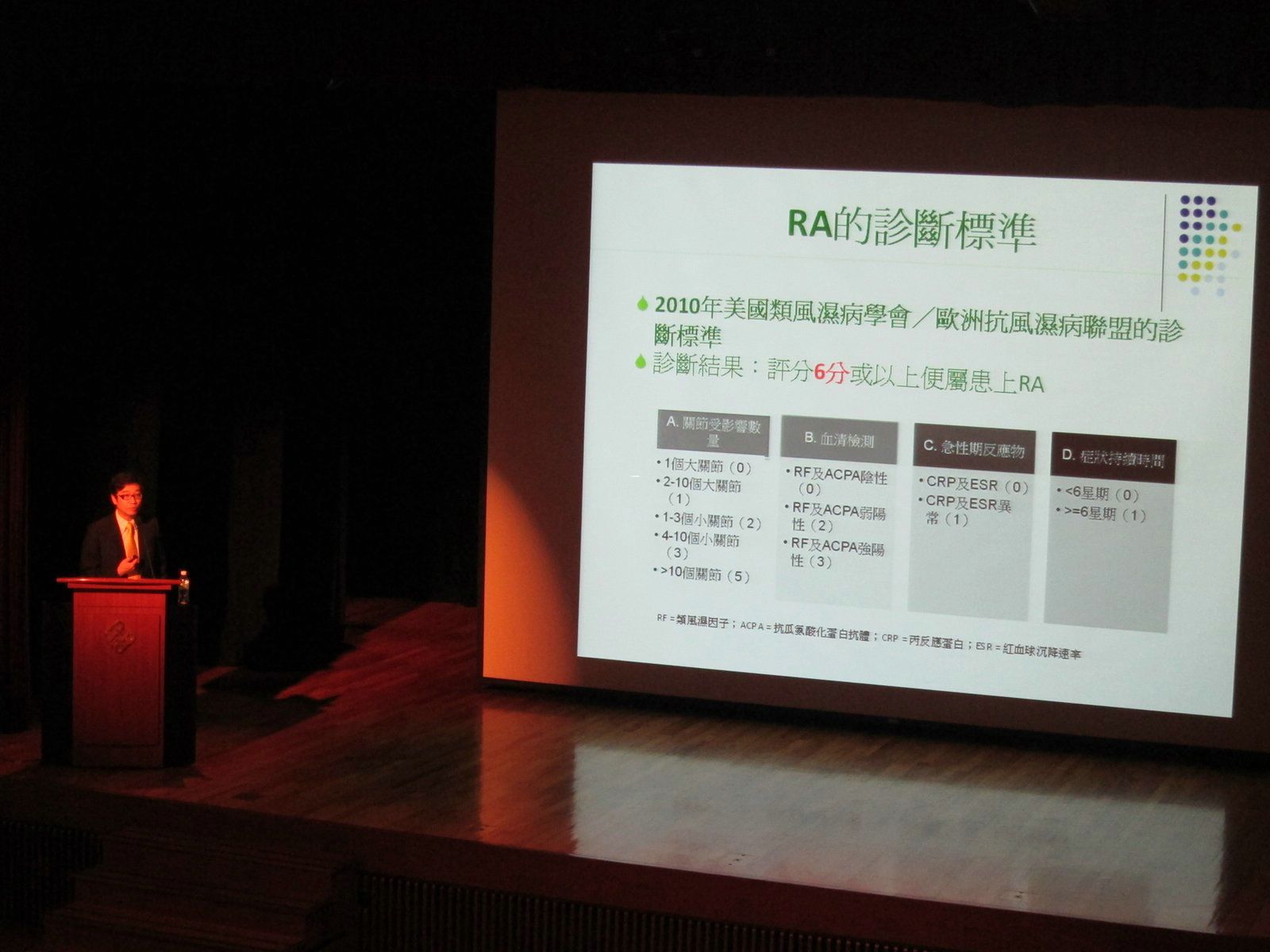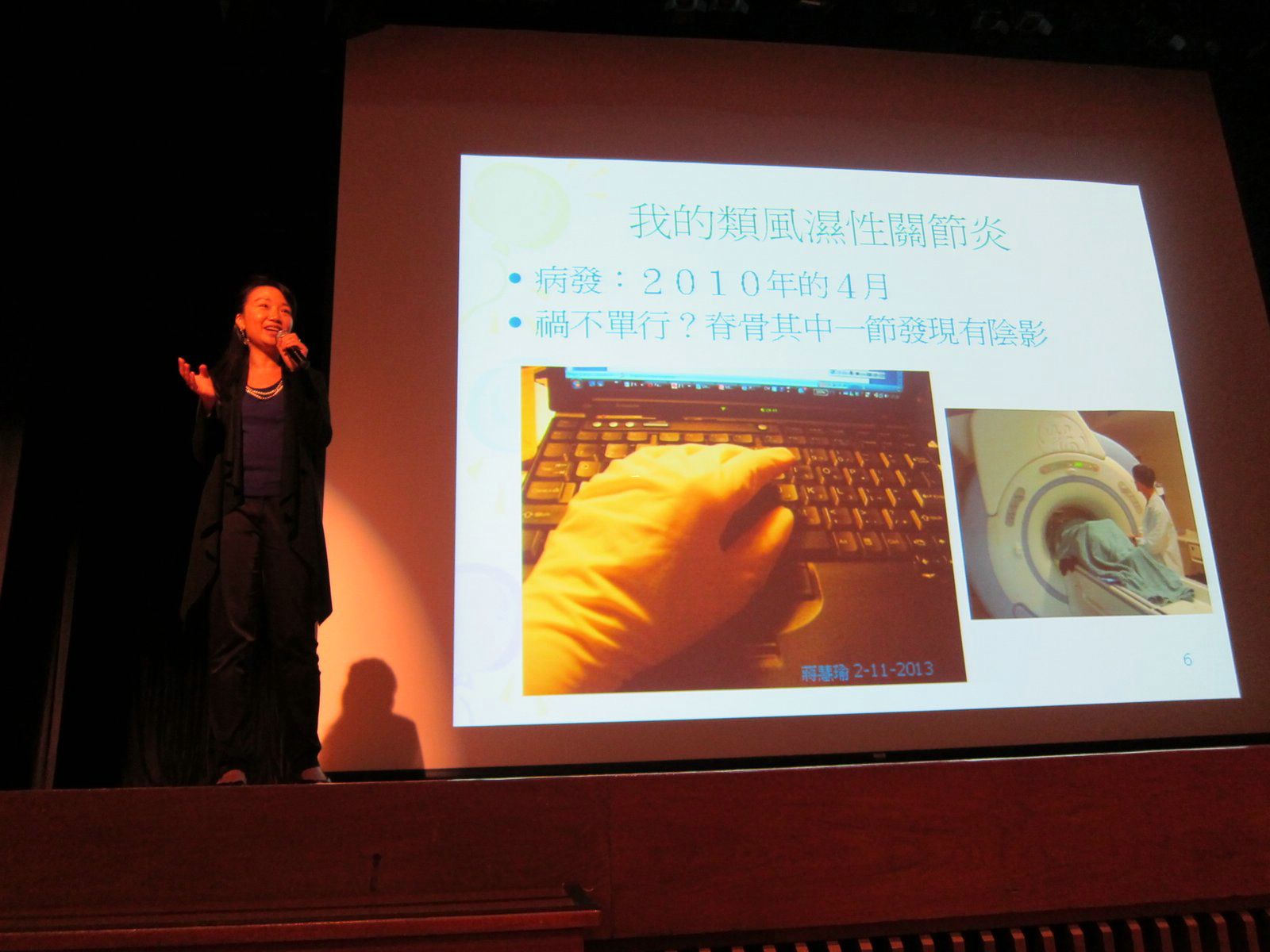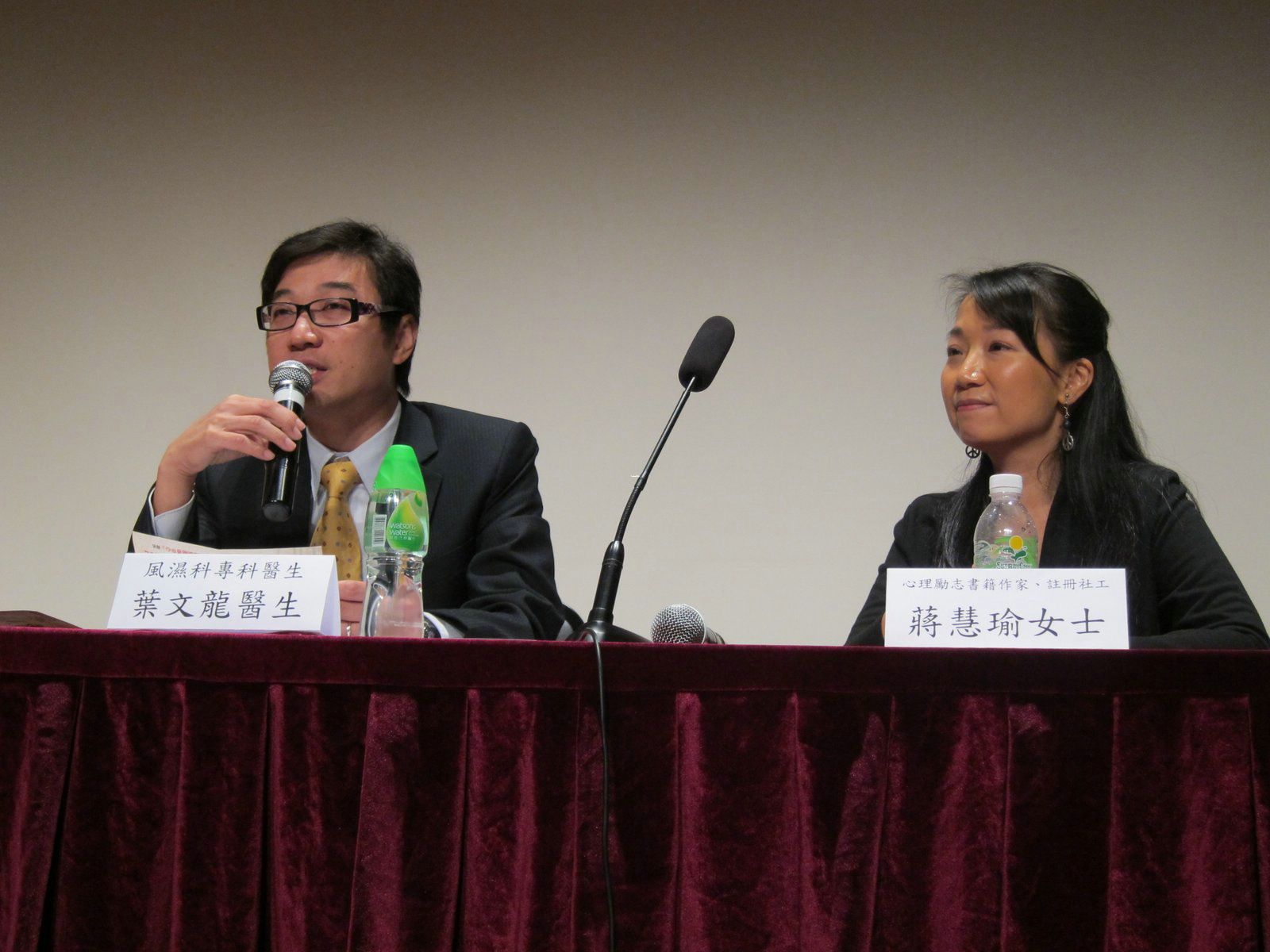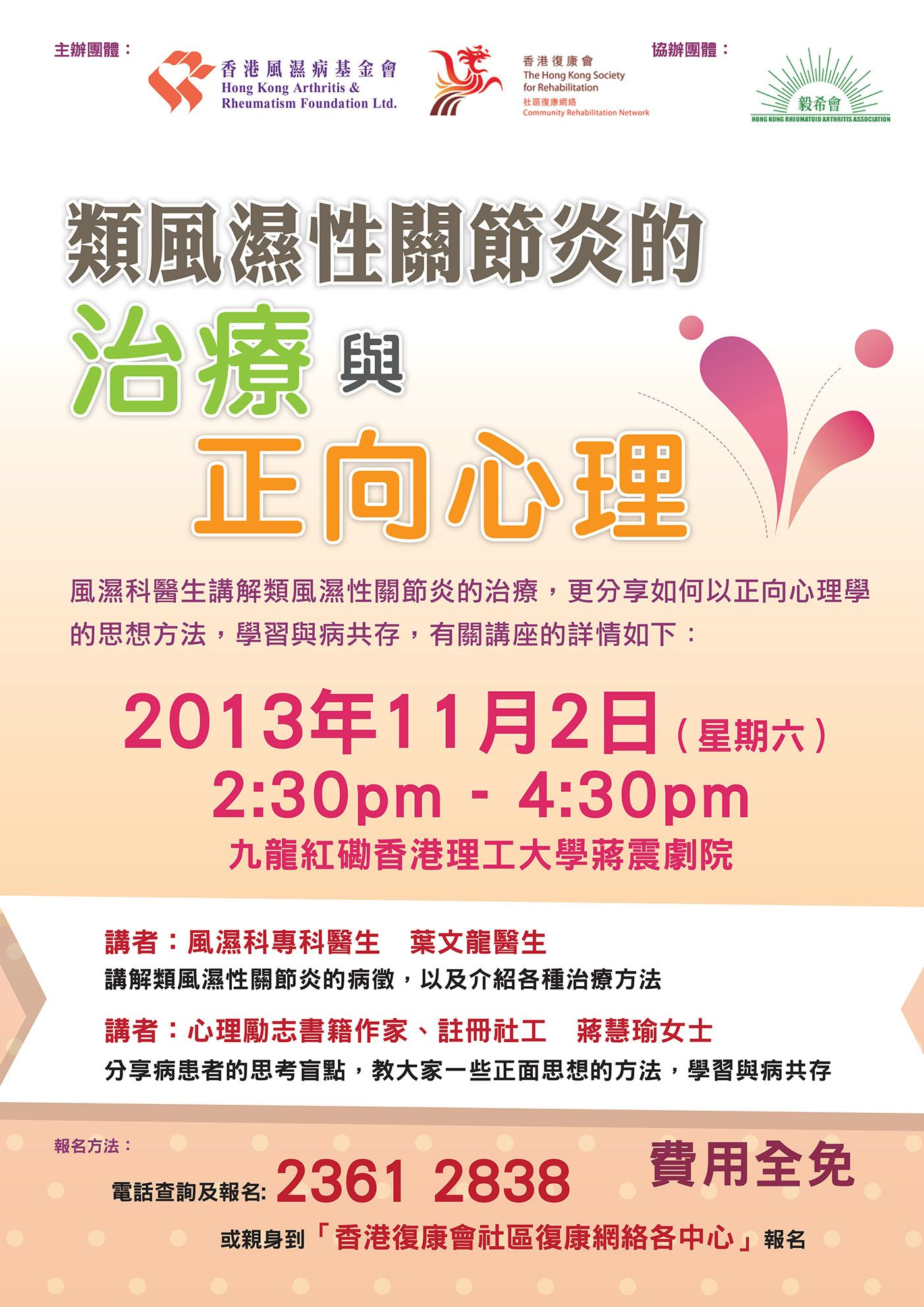
RA Talk – Treatment & Positive Psychology
2nd November 2013
Rheumatoid arthritis Talk – Treatment & Positive Psychology was taken part in Chiang Chen Studio Theatre, The Hong Kong Polytechnic University on 2nd November 2013. The talk aimed to enhance people’s understanding of Rheumatoid arthritis and facing the disease positively. There were 164 participants in total.
The talk was started by Dr. Ronald YIP, a specialist in Rheumatology, to introduce the common symptoms of Rheumatoid arthritis. Diagnosis and treatment of the disease were also illustrated clearly. The function and side-effect of traditional drugs, including NSAID, steroid, and DMARDs and new class of drugs, the biologics were explained respectively. Moreover, Dr. YIP reminded the participants to start the treatment as soon as the disease was identified since joints might seriously damage and deform if delay. He further urged the participants to set up clear goals to control the illness. The calculation of DAS28, a measure of disease activity, was quite complicated. Dr. YIP used several examples to aid the audience to comprehend DAS28 under different circumstances. Once again, Dr. YIP urged participants to seek advice immediately if they had doubts on their conditions and communicated well with the medical personnel. In the hope of desirable therapeutic outcome, appropriate medication and goal of treatment should be chosen.
Apart from this, the talk was continued by Ms. Annie CHIANG, the writer and registered social worker who shared the experiences of being attacked by Rheumatoid arthritis. She explained and encouraged the participants to face the disease with positive psychology. She invited the participants to put a coin in front of them and slowly move toward their eye. The simple game demonstrated a small coin could block one’s whole view. This implied people might be overwhelmed by the negative emotion and entered a vicious cycle when getting sick. In conclusion, Ms. CHIANG shared a story that stimulated participants’ deep thoughts. Perspective on the problem induced greater influence to the person than the nature of that problem.
Most participants were interested in the treatment of Rheumatoid arthritis especially the use of biologics. Dr. YIP answered their enquiries patiently. They were satisfied with the arrangement and content of the talk and hoped to join these activities in the future.

